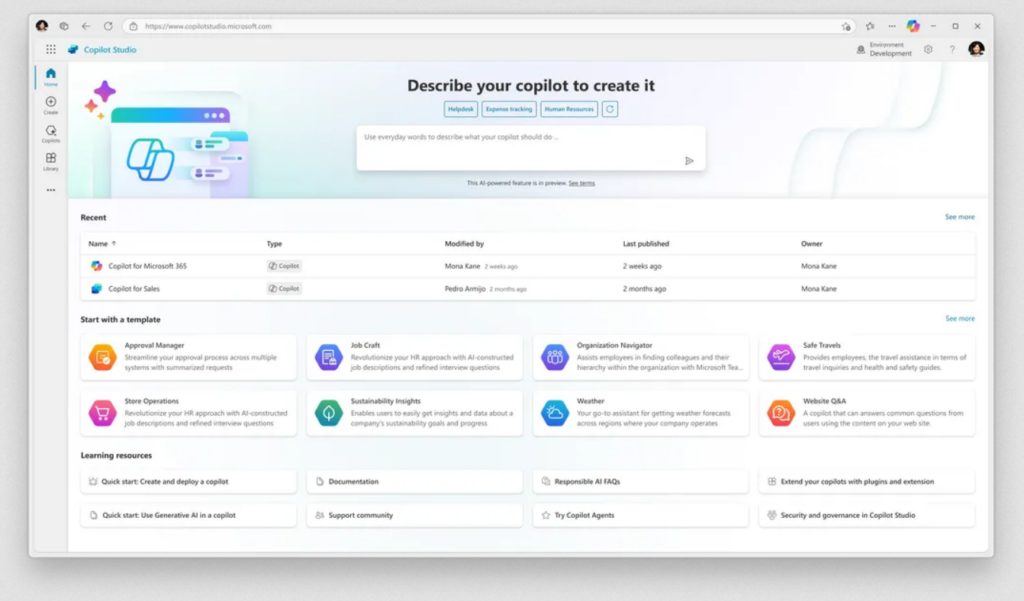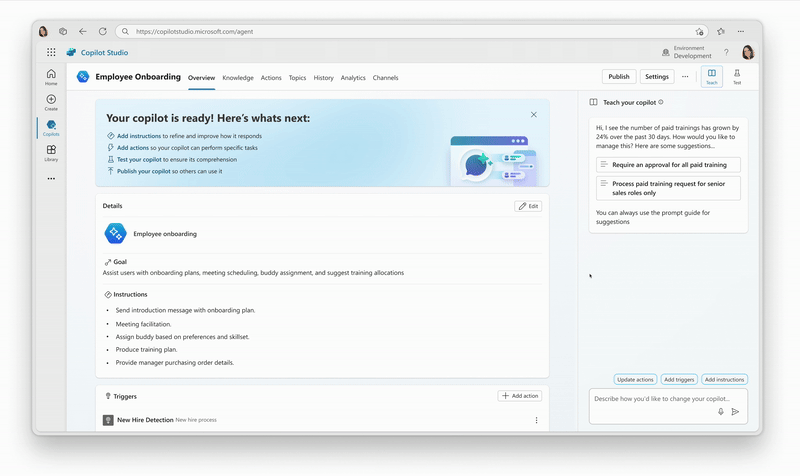Microsoft is set to revolutionize the way businesses and developers utilize AI with the introduction of AI-powered Copilots that function like virtual employees, automating tasks traditionally performed manually. This significant enhancement will allow Copilots to proactively handle activities such as monitoring email inboxes and automating data entry, marking a substantial shift in the behaviour of these AI tools, commonly known in the industry as AI agents.
Charles Lamanna, Corporate Vice President of Business Apps and Platforms at Microsoft, explained the need for this evolution. “We very quickly realized that constraining Copilot to just being conversational was extremely limiting in what Copilot can do today,” he said. The new capability will enable Copilots to work autonomously in the background, performing automated tasks without waiting for user prompts.

Microsoft is currently previewing this feature to a select group of early access testers and plans a public preview within Copilot Studio later this year. Businesses will soon be able to create Copilot agents capable of handling tasks like IT help desk services and employee onboarding. “Copilots are evolving from copilots that work with you, to copilots that work for you,” stated Microsoft in a blog post.
These Copilot agents will be triggered by specific events and will interact with a business’s data. For instance, a Copilot designed for employee onboarding could greet new hires, provide HR information, answer questions, introduce them to colleagues, manage training schedules, and set up initial meetings. This automation aims to reduce administrative burdens, allowing HR and employees to focus on their primary tasks.
Despite the promising advancements, there are concerns about potential job losses and the future trajectory of AI. Lamanna argues that these AI agents are designed to eliminate repetitive and mundane tasks rather than replace jobs entirely. “What makes a job, what makes a role? It’s a bunch of different tasks and generally, it’s a very large number of very diverse and heterogeneous tasks,” Lamanna explained. He believes that Copilot agents will automate tasks that are typically undesirable, freeing up employees to focus on more engaging work.
However, the industry is cautious about the broader implications of such automation. While Microsoft assures that human judgment and collaboration will remain essential, the current limitations of generative AI, such as hallucinations, are significant concerns. To mitigate these issues, Microsoft has built several controls into Copilot Studio, ensuring that Copilot agents do not operate beyond defined parameters or automate tasks incorrectly.
The ability to flag certain scenarios for human review will be a crucial feature for more complex tasks. This ensures that Copilot agents operate within the specified confines and adhere to the instructions associated with automated tasks.
Microsoft is also enhancing the integration of business data into custom Copilots, with connections to public websites, SharePoint, OneDrive, and more. This is part of a broader effort to make Copilot more than a simple chatbot that generates content. “Copilot in 2023 — and Microsoft — was very focused on searching over your data, summarizing your content, and generating new content. We think Copilot in 2024 is going to be very focused on customization,” said Lamanna. New Copilot extensions will support this customization, allowing developers to create connectors that extend Copilot across various business systems.

Additionally, Microsoft is developing a Team Copilot feature to enable Copilots to work with groups, manage meeting agendas, moderate team chats, assign tasks, and track deadlines in Microsoft Planner. This feature is set to be previewed later this year.
Other tech giants, such as Google, are also exploring similar AI agent concepts. At Google I/O, early concepts for AI agents that automate tasks were showcased, demonstrating how Gmail users could use an AI agent to complete a return form and arrange a collection for a pair of shoes.
As businesses and consumers prepare to integrate these advanced AI agents, questions about reliability and trust remain. With instances of AI failures in basic tasks still fresh in memory, it remains to be seen whether these AI agents will gain the trust needed to automate tasks effectively in the background. The industry is on the cusp of a significant transformation, and the coming months will reveal how these AI innovations will perform in real-world applications.






